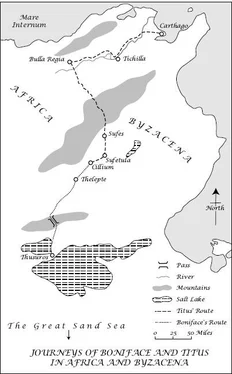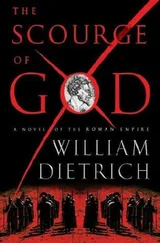Ross Laidlaw - Attila:The Scourge of God
Здесь есть возможность читать онлайн «Ross Laidlaw - Attila:The Scourge of God» весь текст электронной книги совершенно бесплатно (целиком полную версию без сокращений). В некоторых случаях можно слушать аудио, скачать через торрент в формате fb2 и присутствует краткое содержание. Жанр: Исторические приключения, на английском языке. Описание произведения, (предисловие) а так же отзывы посетителей доступны на портале библиотеки ЛибКат.
- Название:Attila:The Scourge of God
- Автор:
- Жанр:
- Год:неизвестен
- ISBN:нет данных
- Рейтинг книги:5 / 5. Голосов: 1
-
Избранное:Добавить в избранное
- Отзывы:
-
Ваша оценка:
- 100
- 1
- 2
- 3
- 4
- 5
Attila:The Scourge of God: краткое содержание, описание и аннотация
Предлагаем к чтению аннотацию, описание, краткое содержание или предисловие (зависит от того, что написал сам автор книги «Attila:The Scourge of God»). Если вы не нашли необходимую информацию о книге — напишите в комментариях, мы постараемся отыскать её.
Attila:The Scourge of God — читать онлайн бесплатно полную книгу (весь текст) целиком
Ниже представлен текст книги, разбитый по страницам. Система сохранения места последней прочитанной страницы, позволяет с удобством читать онлайн бесплатно книгу «Attila:The Scourge of God», без необходимости каждый раз заново искать на чём Вы остановились. Поставьте закладку, и сможете в любой момент перейти на страницу, на которой закончили чтение.
Интервал:
Закладка:
197 ‘Avitacum, the estate of Senator Avitus’. Sidonius Apollinaris, son-in-law of Avitus, has left us a description of the place. There are views of the hills and across Lac d’Aydat, heated baths, outhouses, women’s quarters, and a summerhouse. Sidonius talks of drinking snow-cooled wine while watching fishermen on the lake; and he describes the rural sounds of frogs, chickens, swans, geese, wild birds, cattle, cowbells, and shepherd’s pipes. A scene straight out of Virgil’s Georgics — ironically, painted as the Western Empire tottered towards its final collapse.
Chapter 26
202 ‘the recently enacted Law of Citations’. This was compiled under Valentinian III in 426, in an attempt to clarify the rather ramshackle mass of sometimes conflicting Roman legislation; a further improvement, the Theodosian Code (compiled in the Eastern Empire) followed in 438. The stately fabric of Roman law which we know today and which forms the basis of Scots law and the legal systems of other nations, is the great Digest of Justinian, a selective condensation of Roman laws from Hadrian to 533, the year of the Digest ’s publication.
202 ‘Papinian was to have the casting vote’. Aemilius Papinianus was the most celebrated Roman jurist before the time of Justinian. He was put to death by Caracalla in 212 AD.
203 ‘But this could happen only once’. Penance would obviously incur prior admission of the sins to be expunged. But that was very different from the present practice of Confession followed by Absolution, on a regular basis. This only became formalized in the fourth Lateran Council of 1215, and received final confirmation in the Council of Trent, 1545-63.
Chapter 28
214 ‘another Zama’. Zama was the decisive battle in North Africa, in which Scipio the Younger inflicted a crushing defeat on Hannibal in 201 BC. The long and bitter struggle against Carthage brought out the best in the Roman character, creating a patriotic resolve akin to the ‘Dunkirk spirit’, or the sentiments expressed in Robert Burns’ poem, ‘Bruce’s Address at Bannockburn’.
219 ‘sowing dragon’s teeth’. A reference to an incident recounted in the Greek legend of the Golden Fleece, where warriors sprang up from land sown with dragon’s teeth.
220 ‘Orestes, his young Roman secretary’. A brave and talented man who, after the death of Attila rose to become Master of Soldiers in Italia, Orestes was the father of the last Western Roman Emperor, Romulus Augustus — those names a chilling echo of Rome’s founder, and of her first Emperor.
Chapter 29
223 ‘Sirmium, the mighty Illyrian city’. Mitrovica, in Kosovo, along with Belgrade, is by a macabre coincidence once more associated with a policy of genocide and ‘ethnic cleansing’. For Huns read Serbs. Illyria, comprising the East’s Balkan provinces, should not be confused with Illyricum, the West’s most easterly diocese.
226 ‘the city was. . systematically demolished’. The capture and destruction of great cities like Sirmium, hitherto thought impregnable, especially to barbarians, must have dealt the Romans a terrible psychological blow, creating panic and hopelessness.
227 ‘the circus faction of the Greens’. The Greens and the Blues were the opposing supporters of the rival chariot-racing teams in Constantinople, distinguished by those colours. They could wield enormous influence, as in the ‘Nika’ riots of 532, which almost toppled the emperor Justinian. Shades of Celtic v . Rangers! The Blues tended to identify with the emperor and the Establishment.
Chapter 30
237 ‘in extending their conquests so far westward’. Recent discoveries have confirmed the vast distance the Huns migrated from their original homeland, which was probably to the north of Korea. In north-west Hungary, the last area to fall to them, a Hunnic hoard has been found, containing small gold horses, identical to others discovered in a huge arc extending across eastern Europe, and Asia as far as eastern Siberia.
239 ‘a grotesquely inflated nose’. Europe’s only antelope, the saiga formerly existed in enormous herds across the steppelands of Asia and eastern Europe. Almost wiped out in the severe winter of 1829, it is making a comeback and is now protected. Its salient feature, a hugely enlarged nose, contains structures to warm the air and filter dust from it.
241 ‘a mighty aqueduct’. Built by Emperor Valens in 375, much of it is still standing, having been in use until the late nineteenth century. A classic Roman structure, it dramatically spans a valley in a double series of superimposed arches.
242 ‘four mighty horses in bronze’. They were looted by the Venetians after their capture of the city in 1204, and are now to be seen adorning St Mark’s Cathedral in Venice.
Chapter 31
245 ‘King Chlodio’. Chlodio was the great-grandfather of Clovis (Chlodovec), whose reign was of seminal importance for two reasons: (i) under Clovis, the Franks became the dominant power in Gaul, henceforth to be known as Francia — France; (ii) Clovis’ marriage to a Catholic princess led to his, and his people’s, conversion from Arianism, which helped to unite Gallo-Romans and Germans in his kingdom.
246 ‘a mighty comitatus ’. The warrior society of the early Germans shows remarkable parallels to that of the Highland clans or Border reivers in Scotland, where a successful war-leader would attract a retinue of armed followers who adopted his surname. (The word ‘surname’ was coined in the Borders.)
Chapter 32
256 ‘Eratosthenes. . was said to be able. . to measure its circumference’. His method was brilliantly simple. By comparison of the sun’s relative position at two separate points on the earth’s surface (north-south), the angle subtended by the measured distance between these points was calculated. 360 degrees was then divided by this angle and the result multiplied by the distance. This gave a measurement astonishingly close to the modern estimate of 24,000 miles. Pure geometry — pure genius.
Chapter 36
272 ‘To Aegidius, consul for the third time’. Perhaps from the similarity of the names, Gildas is confusing Aegidius with Aetius, to whom the appeal was actually sent. Aegidius at the time was serving under Aetius in Gaul, as was Majorian, the future emperor. Aegidius was destined to become ‘Master of Soldiers throughout the Gauls’.
277 ‘as the patrol neared Anderida’. Pevensey — Anderida to the Romans — held out until 491. The entry for that year in The Anglo-Saxon Chronicle says: ‘In this year Aelle and Cissa besieged Andredesceaster and slew all the inhabitants; there was not even one Briton left alive.’
Chapter 37
281 ‘Constantine rose to the occasion’. As did the emperor — in the only way he knew how. Theodosius led a penitential procession of ten thousand, barefoot, with hymns, icons and relics, to the Hebdomon palace for a great service of supplication.
282 ‘a massively solid, finished piece of work’. And still standing: a tribute to Roman engineering genius — and the terror inspired by Attila. They held firm against all attacks for another thousand years, until finally falling to the Turks in 1453. A contemporary inscription on the Walls commemorates Constantine: ‘ Constantinus ovans haec moenia firma locavit [Triumphantly, Constantine raised these stout ramparts].’ An ambitious reconstruction scheme has recently restored part of the Walls to their original glory.
Chapter 38
287 ‘Attila must surely hesitate before again taking on a Roman army’. The Battle of the Utus was in fact the last occasion when the Huns defeated a Roman army.
Читать дальшеИнтервал:
Закладка:
Похожие книги на «Attila:The Scourge of God»
Представляем Вашему вниманию похожие книги на «Attila:The Scourge of God» списком для выбора. Мы отобрали схожую по названию и смыслу литературу в надежде предоставить читателям больше вариантов отыскать новые, интересные, ещё непрочитанные произведения.
Обсуждение, отзывы о книге «Attila:The Scourge of God» и просто собственные мнения читателей. Оставьте ваши комментарии, напишите, что Вы думаете о произведении, его смысле или главных героях. Укажите что конкретно понравилось, а что нет, и почему Вы так считаете.












